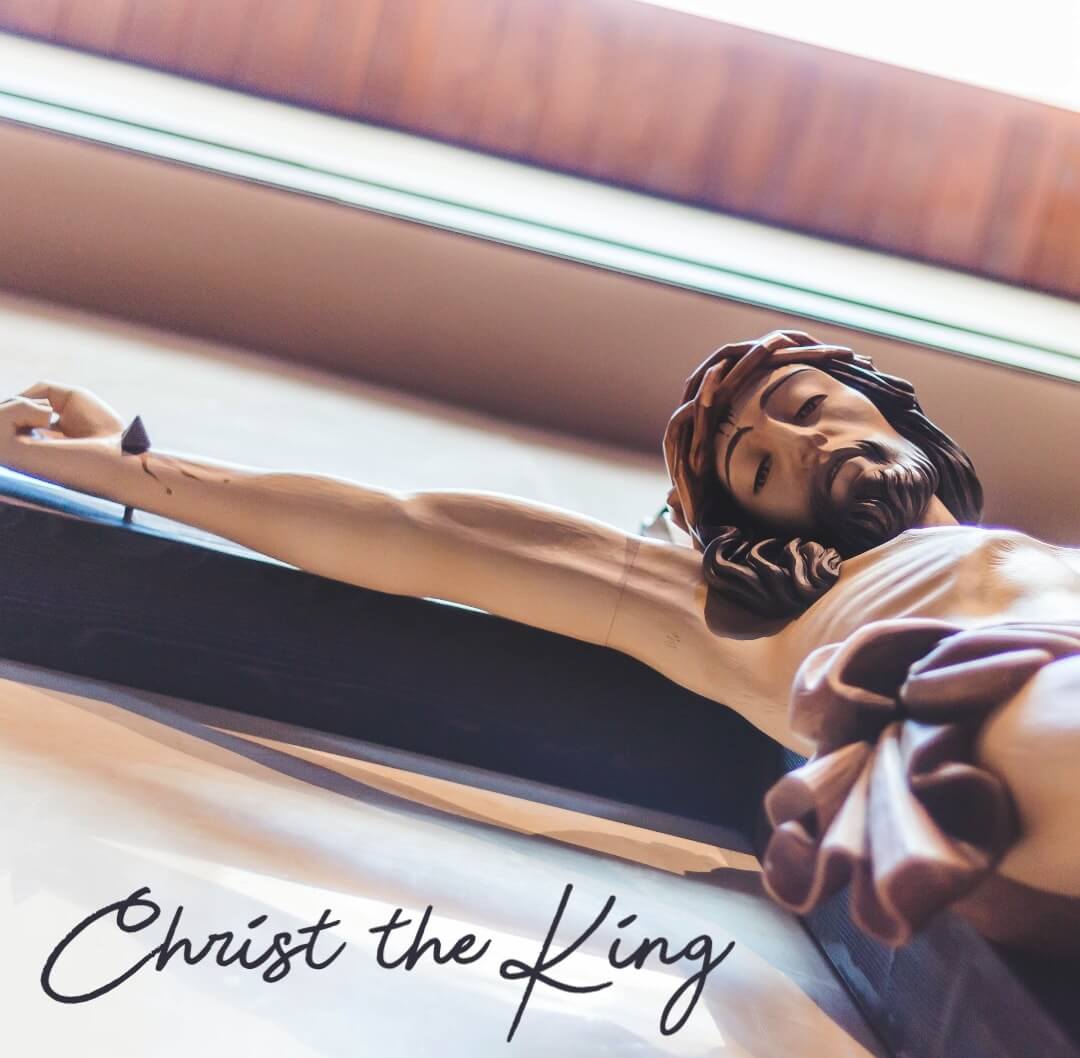
“Jesus Christ is the beginning and the end, the Alpha and the Omega. He is the king of the new world. He is the secret of history. He is the key to our destiny.”( Pope Paul VI)
Today we celebrate the solemnity of Christ the King. Why do we celebrate the feast of Christ the King? While he was here on earth, Jesus never wanted to establish himself as a king. After having multiplied the bread, people wanted to enthrone him as king, but he escaped from their midst. The reason he did not establish himself as a king is that his kingship is beyond the boundaries of this earth. It extends to the boundaries of the cosmos, and he reigns over the entire universe as its king.
How do we understand his eternal kingship? St. John begins his gospel by mentioning the pre-existence of Christ. In the beginning was the Word, and the Word was with God, and the Word was God. “He was in the beginning with God. All things came into being through him, and without him, not one thing came into being.” (Jn. 1:1-3) Paul underscores his reign in these words: “In him we live and move and have our being” (Acts 17:28). In his letter to the Philippians, Paul acknowledges the greatness of his kingship: “So that at the name given to Jesus every knee should bend, in heaven and on earth and under the earth, and every tongue should confess that Jesus Christ is Lord, to the glory of God the Father.” (Philip.2:10,11)
How did his eternal kingship become part of an earthly kingship? The major theme of the Old Testament is the covenant God made with Abraham and his descendants: “And by your offspring shall all the nations of the earth gain blessing for themselves, because you have obeyed my voice.” (Gen. 22:18) We see that as time passes, this covenant gets more and more clear. God tells Abraham that through your descendants, all generations will be blessed. God renews this covenant with Isaac and Jacob. Jacob’s son, Judah, became the privileged tribe to have a saviour as their descendant. “The scepter shall not depart from Judah, nor the ruler’s staff from between his feet. until tribute comes to him.” (Gen. 49:10) We see God raising David as the prominent king of this tribe. God renews their commitment by telling him, “Your house and your kingdom shall be made sure forever before me; your throne shall be established forever.” (2 Sam.7:16) Joseph, the foster father of Jesus, was the descendent of this tribe, and by naming Jesus, he became his father before the law, and thus Jesus became part of this royal dynasty; moreover, this dynasty became part of this eternal kingship.
Jesus made his kingdom everlasting, not by waging a war. When Jesus stands before Pilate, he asks, Are you the King? Then Jesus clarifies the nature of his kingship. His kingship is not of this world; if so, then soldiers would have fought to defend him. In fact, at Gethsemane, Peter cut the ear of the servant of the high priest. Jesus stopped Peter immediately, saying, “Put your sword back into its sheath. Am I not to drink the cup that the Father has given me?” (Jn. 18:11). He knew shedding someone’s blood would not help humanity liberate itself from the bonds of sin, but he had to shed his blood. At the throne of the cross, Jesus wages war against the temptation to come out of the cross and accepts death for the salvation of humanity, his subjects. However, raised from the dead, he established his kingdom over against the kingdom of Satan and his power. Thus, he made the throne of David eternal by making it part of his salvific mission. With his ascension, his kingship did not come to an end. The entire cosmos will experience the glory of this kingship at the end of time, in his second coming.
In the gospel, we see Jesus judging nations. While Jesus was here on earth, he did not live like a king but rather as a shepherd, seeking and finding the lost sheep of Israel. Jesus expects all of us to remain humble shepherds after his own heart. Jesus reached out to the needy brothers and sisters as the face of God’s mercy. On the last judgement day, Jesus appreciates those who become the face of God’s mercy by providing water for the thirsty, food for the hungry, clothing for the naked, food for the hungry, and visiting the sick; they too will receive mercy and a place in his kingdom; those who fail will be rejected from his kingdom. As we celebrate this feast of Christ the King, let us live a life that pertains to his subjects and spreads the values of his kingdom, and let us give hope to all those who are suffering the atrocities of war and calamities that He reigns and whose merciful gaze is upon them.